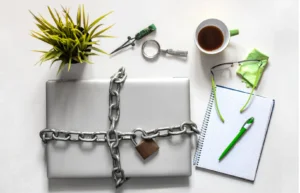
The Hidden Power of Fasting Intermittent: Unlock Natural Healing
Fasting intermittently is a popular way to improve health and wellness. It involves alternating between eating and fasting periods, allowing flexibility for those who want

Welcome to “Navigating Gastroparesis: A Journey Free from Abdominal Pain.” In this blog, we embark on an exploration of living with and overcoming gastroparesis’ challenges.
Gastroparesis, a condition characterized by delayed emptying of the stomach, can be a daunting journey filled with abdominal pain, discomfort, and the need for thoughtful navigation. Whether you are personally navigating the complexities of this condition or seeking insights to support a loved one, we dedicate this space to providing valuable information and empowering you with strategies for managing and alleviating symptoms. Join us as we delve into the intricacies of this condition, seeking not only to understand its challenges but also to discover pathways toward a life free from abdominal pain. Together, let’s navigate this journey, empower each other, and find hope in the shared strength of facing gastroparesis head-on.
Here’s to a journey filled with knowledge, resilience, and a path toward a life that transcends the constraints of abdominal pain associated with gastroparesis. Welcome to a community that understands, supports, and navigates the complexities together.

Gastroparesis is a medical condition that disrupts the normal movement of stomach muscles, resulting in delayed food emptying into the small intestine. The term “gastroparesis” translates to “paralyzed stomach,” which reflects the impaired motility observed in individuals with this condition.
In a healthy digestive system, contractions of the stomach muscles help break down and propel food through the digestive tract. However, in gastroparesis, these contractions are weakened or absent, causing food to stay in the stomach for an extended period. Delayed gastric and stomach emptying can lead to various symptoms and complications.
Persistent feelings of nausea and vomiting, especially after eating.
Discomfort or sharp pain in the abdominal area.
A sensation of fullness or bloating even after consuming small amounts of food.
Unintended weight loss due to reduced appetite and difficulty eating.
Gastroparesis can affect the regulation of blood sugar levels, particularly blood glucose, in individuals with diabetes.
Normal contractions of the stomach muscles that propel food through the digestive system become weakened or absent. As a result, the stomach takes longer than usual to empty its contents into the small intestine.

The exact cause of gastroparesis is not always clear as there are various factors associated with gastroparesis.
Some common causes and contributing factors include:
Diabetes
Diabetes, especially when poorly controlled, is one of the most common causes of gastroparesis. Elevated blood sugar levels over time can damage the nerves that control stomach muscle contractions.
Post-Surgical Factors
Some people may develop gastroparesis as a complication of abdominal surgery, particularly procedures that involve the stomach or nerves controlling stomach function.
Viral Infections
Certain viral infections, such as viral stomach flu, can cause inflammation of the stomach lining, affecting its motility.
Neurological Diseases
Conditions affecting the nervous system, such as Parkinson’s disease or multiple sclerosis, can interfere with the normal functioning of the stomach muscles.
Medications
Some medications, such as certain antidepressants, anticholinergics, and opioids, can contribute to delayed gastric emptying.
Autoimmune Disorders
Conditions where the immune system mistakenly attacks the body’s own cells, such as scleroderma, can affect the muscles of the gastrointestinal tract.
Hormonal Changes
Hormonal changes, particularly in women, may contribute to gastroparesis. This is more common during periods of hormonal fluctuations, such as pregnancy.
Psychological Factors
Stress and psychological factors may exacerbate symptoms in some individuals, although they are not primary causes of gastroparesis. Eating disorders can also impact eating patterns and contribute to the development of disordered eating behaviors.
Vagus Nerve
The vagus nerve plays a significant role in the regulation of digestive functions, and its dysfunction can contribute to conditions like gastroparesis and gastroesophageal reflux disease.
It’s important to note that, in many cases, healthcare professionals may not definitively identify the cause of gastroparesis, and they may sometimes refer to it as idiopathic gastroparesis.
Diagnosing gastroparesis typically involves a combination of a medical history review, physical examination, and blood tests or a gastric emptying test, such as gastric emptying scintigraphy (a medical imaging procedure used to evaluate the rate at which food leaves the stomach and enters the small intestine). Treatment approaches aim to alleviate symptoms and may include dietary modifications, medications to stimulate stomach contractions, and, in severe cases, surgical interventions.
Managing and treating gastroparesis often requires a multidisciplinary approach involving healthcare professionals such as gastroenterologists, dietitians, and, in the case of diabetic gastroparesis, endocrinologists.
Low-Fiber Diet: Reduce the intake of high-fiber foods, as they can be harder to digest.
Smaller, Frequent Meals: Opt for smaller, more frequent meals throughout the day to ease the digestive process.
Soft and Well-Cooked Foods: Choose softer and well-cooked foods that are easier on the stomach.
Avoid Gas-Producing Foods: Minimize or avoid foods that can produce gas, such as beans and carbonated beverages.
Avoid High Fat Foods.
Adequate Water Intake: Ensure proper hydration, especially in cases of persistent vomiting or dehydration.
Ginger Tea: Ginger has anti-nausea properties and may help alleviate nausea associated with gastroparesis.
Acupuncture: Some individuals find relief from gastroparesis symptoms through acupuncture, a traditional Chinese medicine technique involving the insertion of thin needles into specific points on the body.
Probiotic Supplements: Probiotics may help promote gut health and support digestion.
Well of Life Probiotic-40 Billion Blend
The Well Of Life™ Probiotic contains 40 Billion CFU to ensure that you are getting the amount of good bacteria you need.

Chew Thoroughly: Practice thorough chewing to aid the digestive process.
Eat in a Relaxed Environment: Create a calm and relaxed environment while eating to reduce stress on the digestive system.
Gentle Exercise: Engage in gentle physical activity like walking, which may help stimulate digestion.
Stress Reduction Techniques: Practice stress-reducing techniques such as deep breathing, as stress can exacerbate symptoms.
Identify Trigger Foods: Pay attention to foods that trigger symptoms and consider eliminating or reducing their intake. An elimination diet can help identify trigger foods.
Keep a Food Diary: Record your food intake and symptoms in order to identify patterns and make informed dietary decisions.
If you suspect you have symptoms of gastroparesis or have concerns about your digestive health, it is essential to consult with a healthcare professional for a thorough evaluation and appropriate management.
A feeding tube can be a treatment option for individuals with severe gastroparesis, especially when other conservative measures have not been successful in providing adequate nutrition. The purpose of a feeding tube in the context of gastroparesis is to bypass the stomach and directly deliver nutrition to the small intestine, where absorption is less reliant on normal stomach motility.
In concluding our exploration of “Navigating Gastroparesis: A Journey Free from Abdominal Pain,” we’ve embarked on a journey filled with shared experiences insights and valuable information. Throughout this blog series, we’ve delved into the complexities of living with gastroparesis, a condition that impacts the lives of individuals in profound ways.
Remember, the journey does not end here. It continues with each step taken toward managing symptoms, finding effective treatments, and adapting to the ebb and flow of life with gastroparesis. The road to a life free from abdominal pain may be challenging, but the community we’ve built provides a source of inspiration, comfort, and shared wisdom.
As we move forward, let’s carry the lessons learned and the connections made into our daily lives. Whether you’re someone navigating gastroparesis firsthand or a supporter standing by a loved one, your presence and resilience matter.
Thank you for being part of this journey—a journey toward a life that transcends the constraints of abdominal pain. Together, we’ve navigated the complexities, and with continued support and understanding, we look forward to a future where the path becomes a little clearer and the burden a little lighter.
Here’s to hope, strength, and a community united in the pursuit of a life free from abdominal pain. Until we meet again on our next exploration, take each step with purpose and the knowledge that you’re not alone.

Fasting intermittently is a popular way to improve health and wellness. It involves alternating between eating and fasting periods, allowing flexibility for those who want

Gluten-free lifestyles might seem intimidating, particularly if you’re just getting started. All sorts of tasty and healthy options that you may not have thought of

Basic Health for Men: A Gentle Guide for a Better Lifestyle Health for men is a topic that is often overlooked because there are more

The Power of A Digital Detox: Revitalizing Your Life A digital detox is needed now more than ever, as digital devices are our most valuable

The Role of Chlorine Dioxide in Holistic Healing: Alternative Therapies Chlorine dioxide (CDS), also known as the miracle solution, has been underestimated for many years.

A vertigo dizziness remedy can be difficult to find as vertigo can be an unsettling experience. This often leads to a spinning sensation and feeling


This website or its third-party tools use cookies, which are necessary for its functioning and required to achieve the purposes illustrated in the cookie policy. You accept the use of cookies by closing or dismissing this notice, by clicking a link or button or by continuing to browse otherwise.